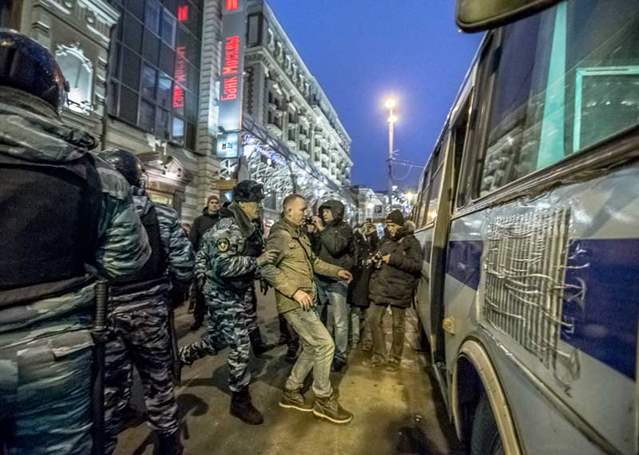Why is freedom of expression important?
The right to freedom of expression is enshrined in Article 19 of the Universal Declaration of Human Rights, which sets out in broad terms the human rights that each of us has. It was later protected legally by a raft of international and regional treaties.
Defending freedom of expression has always been a core part of Amnesty International’s work and is vital in holding the powerful to account. Freedom of expression also underpins other human rights such as the right to freedom of thought, conscience and religion – and allows them to flourish.
It is also closely linked to freedom of association – the right to form and join clubs, societies, trade unions or political parties with anyone you choose; and freedom of peaceful assembly – the right to take part in a peaceful demonstration or public meeting.
However, these very freedoms come under regular attack by governments that want to stifle criticism.
For example, in Egypt it is currently extremely dangerous to criticize the government. Over the course of 2018, the authorities arrested at least 113 individuals citing a host of absurd reasons including satire, tweeting, supporting football clubs, denouncing sexual harassment, editing movies and giving interviews.
Those arrested have been accused of “membership of terrorist groups” and “disseminating false news”. Detained without trial for months, those who eventually faced trial were sentenced by military courts, even though military trials of civilians, in Egypt as elsewhere, are inherently unfair.

Press freedom
A free press reporting on the issues that interest us and shape our lives is a key building block of any rights-respecting society. Yet in Azerbaijan, Turkey and Venezuela to name just a few countries, journalists face repression and attacks.
In June 2019, Tanzania’s parliament fast-tracked the passing of the Written Laws Bill, which would entrench censorship, among other violations. Journalists in the country already operate within the tight confines of a media law that requires media houses to “broadcast or publish news or issues of national importance as government may direct”.
In July 2019, the libel trial began in the Philippines against Maria Ressa, the executive editor of online news outlet Rappler. Ressa, a prominent critic of President Rodrigo Duterte, was arrested in February 2019 on trumped up libel charges after Rappler published detailed investigations into some of the thousands of extrajudicial executions committed by police and unknown armed persons, with Duterte’s explicit encouragement, during drugs-related operations. Her case is widely seen as an attack by the government on press freedom.
During conflict, repression can get worse, such as in Myanmar where journalists investigating the killing of Rohingya men and boys by security forces in Rakhine State were arrested and jailed, before being freed under international pressure.
Freedom of speech
Freedom of speech, or freedom of expression, applies to ideas of all kinds, including those that may be deeply offensive. While international law protects free speech, there are instances where speech can legitimately restricted under the same law – such as when it violates the rights of others, or, advocates hatred and incites discrimination or violence.
However, any restrictions on freedom of expression must be provided by law, protect certain public interests or the rights of others and, be clearly necessary for that purpose. .
In 2018, Amnesty International published research that found that Twitter is a platform where violence and abuse against women flourish, often with little accountability. Instead of the platform being a place where women can express themselves freely and where their voices are strengthened, Twitter leads women to self-censor what they post and limit their interactions. As a company, Twitter is failing its responsibility to respect women’s rights online by inadequately investigating and responding to reports of violence and abuse in a transparent manner.
Comments
Post a Comment